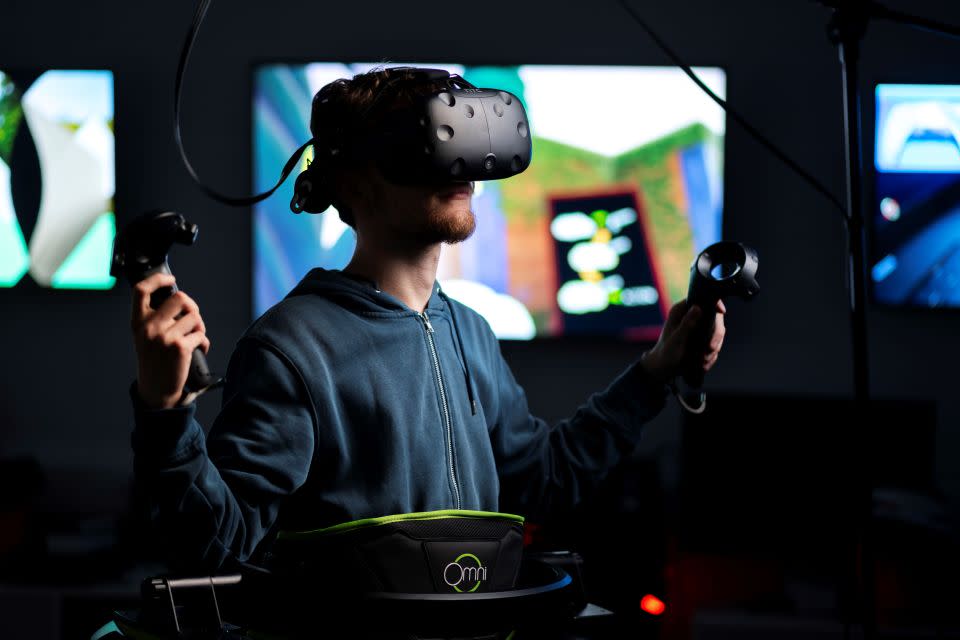The Notebook: Professor Steven Spier on modernising the university experience

Where London’s movers and shakers get a few things off their chest. Today, Professor Steven Spier, Vice-Chancellor of Kingston University, takes The Notebook pen.
AI has potential to exacerbate skills crisis in UK unless educators act swiftly
The exponential growth of artificial intelligence and continuous disruptive technologies compel us to grapple with the ways they need to be harnessed to shape the future. In new polling we have just released at Kingston University in conjunction with YouGov, a mere seven per cent of businesses believe graduates joining the workforce right now are adequately prepared for the impacts of AI.
What’s more, nearly half of the business leaders we surveyed (44 per cent) think AI and other new technologies will have a moderate or fundamental change on their entire business model over the next five years. Never has there been a more pressing need for graduates to be equipped with the skills businesses tell us they most value in the workplace – being able to solve problems creatively by communicating effectively, collaborating as part of a team and innovating when confronted with the unexpected.
Artificial intelligence has drawn into sharp focus the challenge of ensuring students have the skills to succeed in today’s workplace. Students being educated now will have portfolio careers, have their profession change unrecognisably while they are in it, go on to do jobs that don’t yet exist, in sectors we can barely imagine, using tools alien in the current business environment. They need the skills to navigate a world that will be constantly disrupted. In this new digital-first age, there will be a premium on human skills that remain outside technology’s reach, such as creativity and critical thinking.
At Kingston University, we’re addressing these demands through our Future Skills curriculum, embedding those skills for every student in every year of every undergraduate degree across the university. At its core, and based on what business leaders have told us they most value, are nine graduate attributes – creative problem solving, digital competency, being enterprising, having a questioning mindset, adaptability, empathy, collaboration, resilience and self-awareness.
To keep the City moving and our economy thriving, it’s vital universities, businesses and policymakers work together to respond to this challenge – and there is no time to waste. In our new AI-driven era, the need for future-proofed skills has never been more urgent.
Graduates unequipped for world of work
Business leaders are clear – too many graduates are arriving at their doors not ready for the world of work.
Polling conducted by YouGov for our new report, demonstrates that one in four business leaders feel apprehensive about the integration of AI. Other findings show a huge 79 per cent of business leaders believe it’s important that universities teach skills for the future, those beyond their narrow subject, as part of their curriculum.
There is a growing onus on both businesses and educators to rise to this challenge.
AI what?
The wider British public is still unsure about how AI will affect their lives. Only 12 per cent say they have a good understanding of how AI is going to change the future of work. Just 11 per cent have received communication from their employers about the impact of emerging technology on their industry.
Students, however, understand far more about how AI could impact their careers. Kingston University’s YouGov polling shows three quarters (75 per cent) understand this, compared to 59 per cent of 45-54 year olds.
A modern university education

Computer games programming student Ewan Hart Prieto puts his creative innovation to the test in Kingston University’s Centre for Augmented and Virtual Reality Environments, which offers students access to a wealth of specialist equipment. Kingston University is rolling out Future Skills modules, including problem solving and digital competency, to all its undergraduate students to prepare them for career success.
Quote of the week
“We need strong communicators, problem solvers and creators to make the UK the most entrepreneurial economy in the world, scale British business and boost growth.”
Hannah Guerin, CEO of the Enterprise Trust
Podcast, film or book recommendation
I’m finally getting around to reading Edmnund de Waal’s The Hare with the Amber Eyes. It’s an extraordinary memoir of the destruction of his family’s 19th century banking dynasty through the excruciating events of the 20th century, told through the secret lives of an object he inherited. It is beautifully written and haunting, and a reminder of how perilous times can become.

 Yahoo Finance
Yahoo Finance 